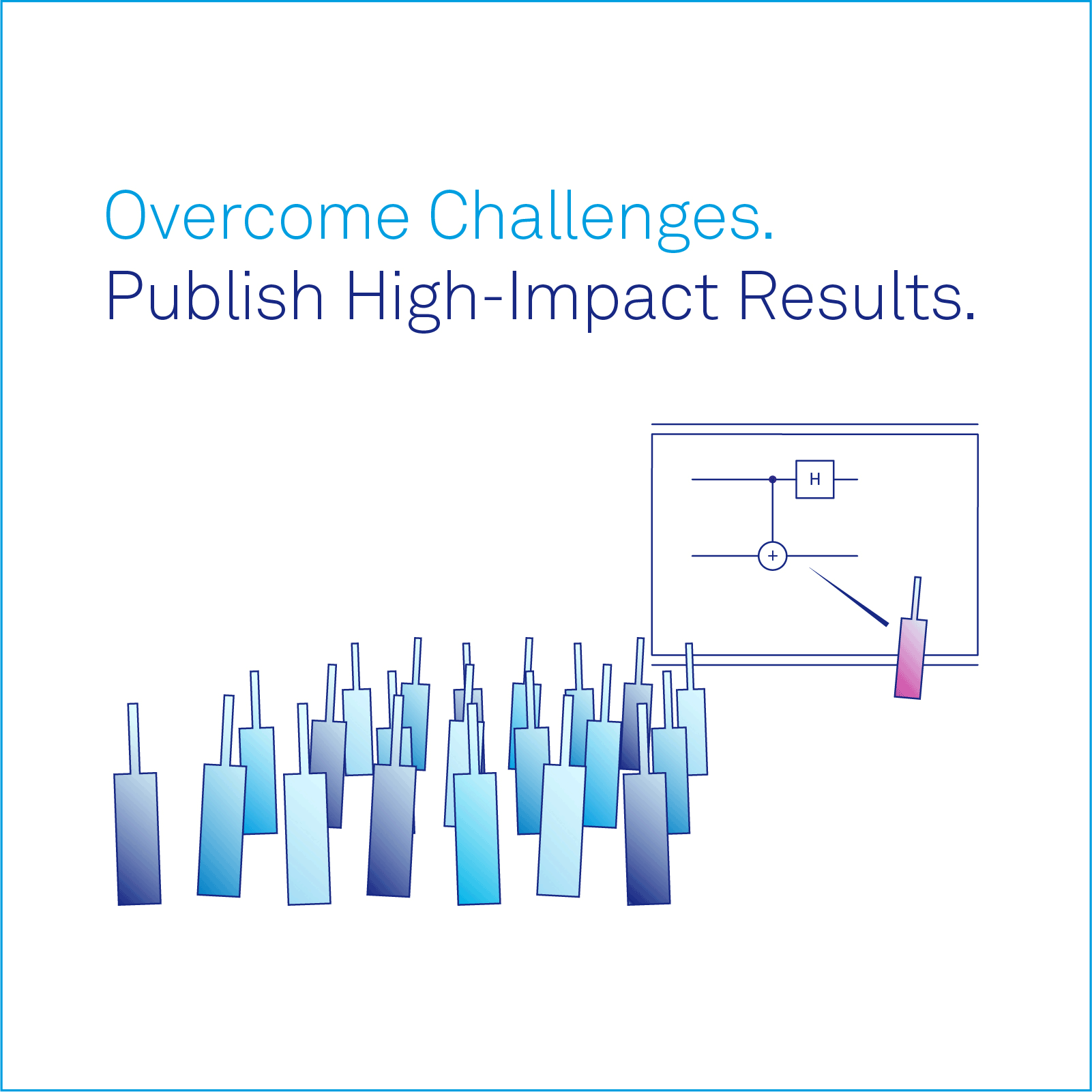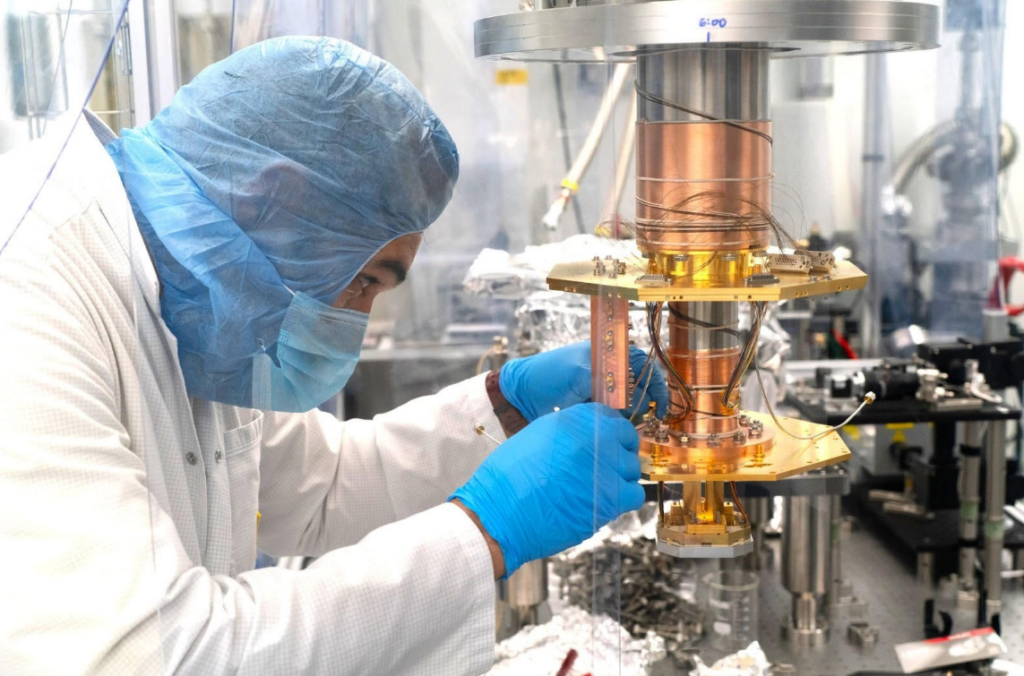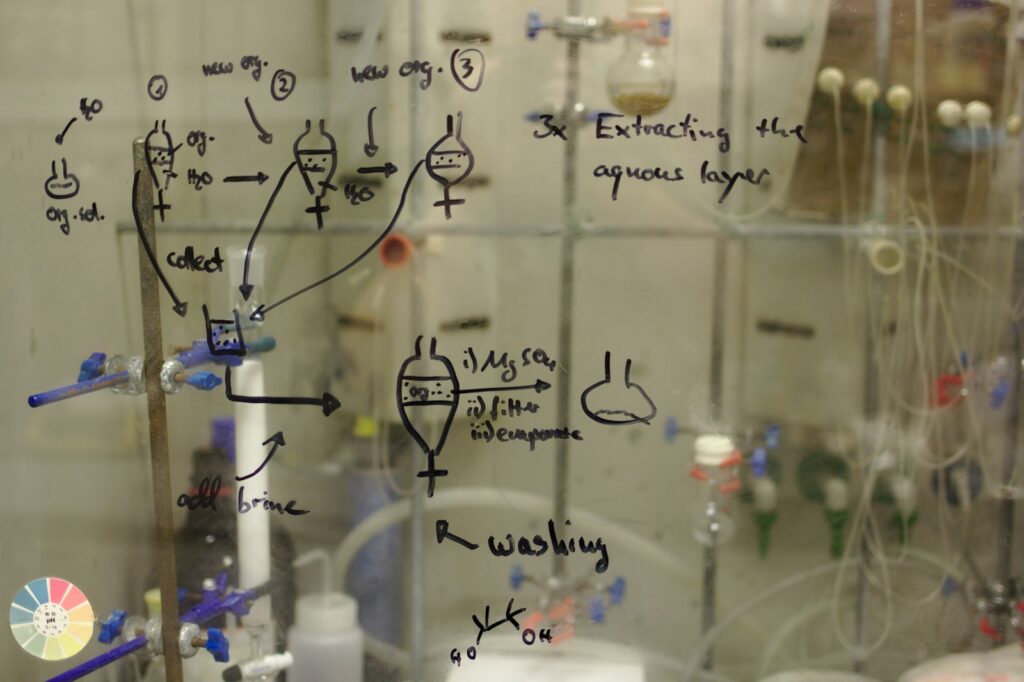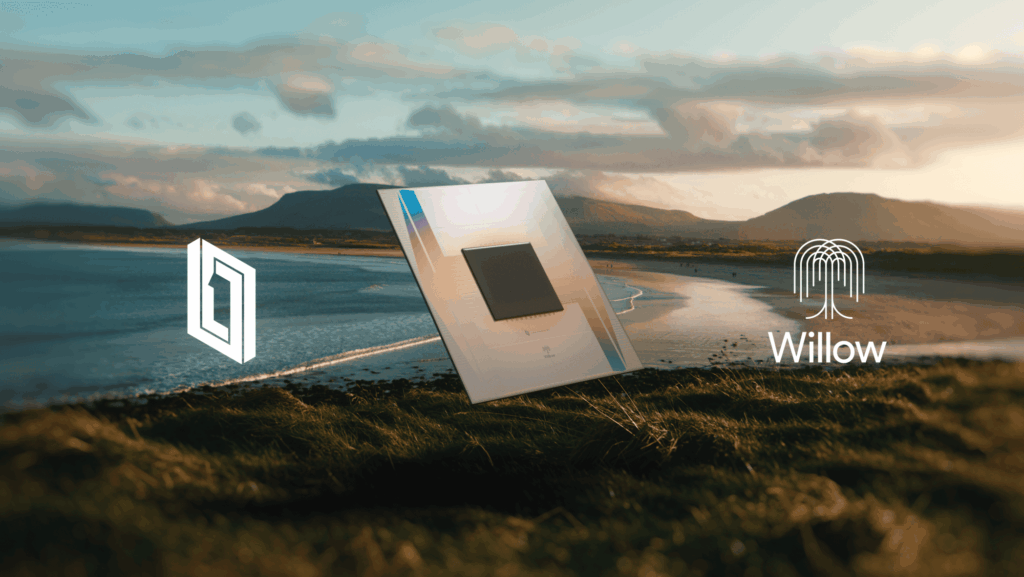SparQ is set to accelerate UK innovation in the use of quantum computing, according to the program’s organizers and partners.
The program, developed by the National Quantum Computing Centre (NQCC), will help UK-based companies and researchers in the early exploration of applications for quantum computing. The NQCC recently announced it will team up with Oxford Quantum Circuits (OQC), a premier UK-based quantum computing company, to provide businesses and researchers with time on Lucy, one of OQC’s quantum computers.
While many government and research institutions around the world have developed programs aimed at raising awareness about quantum, SparQ offers four key elements: access to quantum computers, technical support and applications expertise, workshops and networking opportunities and learning resources. These elements are all aimed at allowing potential users to gain early hands-on experience in working with quantum hardware and algorithms, to address challenges that are relevant to industry, said Simon Plant, deputy director of innovation, NQCC. Critically, the program is not just for quantum computer scientists and researchers, but also industry end users – people who are most likely to take quantum know-how and turn it into real world applications.
The hope is this will create a united quantum community and fire up a virtuous circle of increasing awareness, sharing ideas and producing new solutions and services.

“SparQ has several different elements to it, but the main driver for SparQ is really to help people discover quantum computing, and indeed, open up the exploration of potential applications over time,” said Plant. “Alongside that, we aim for SparQ to enhance quantum literacy. We also want to connect people, in terms of sharing knowledge, ideas and an understanding of quantum computing capabilities, as the technology develops and matures.”
A program that hopes to inspire quantum readiness needs, obviously, a quantum computer – and program participants will be able to access Lucy, one of OQC’s quantum computers and UK’s only domestic quantum computer that is currently accessible as-a-service.
OQC’s CEO Ilana Wisby said there are advantages for the UK ecosystem to access a UK-based machine. She said that in conversations with UK quantum end users that data onshoring – keeping data within a country to protect privacy and limit cost – was considered a big advantage of domestic quantum computing.
“When you talk to customers and end users, they say they don’t want their data to leave their building to keep it secure and ask to have a quantum computer on site. ,” said Wisby. “However, when you better understand their security requirements, they begin to realize that they don’t need a quantum computer “on-premise” as long as they know that the data endpoint is secure, like OQC’s. This is why we engage early on with customers. And the SparQ program is another avenue for us to ensure a strong feedback loop with end users.”

National Priority
The disruptive power of quantum has placed the technology among UK’s national priorities. SparQ’s mission to boost quantum readiness will intensify the focus on quantum tech to power its positive solutions for society broadly.
“I think for us quantum readiness is becoming an increasing priority and it’s a big focus of the NQCC’s activities,” said Plant. “And by quantum readiness, we mean that we are helping to prepare sectors of the UK economy for the adoption of quantum computing, so as to secure benefits, and more importantly, that those benefits can be distributed across wider society. That’s absolutely critical.”
SparQ’s design helps it reach across that wide spectrum of industry that is preparing – or should be preparing – for quantum’s ultimate arrival.
“Sector-based engagement is a vital part of the picture” said Plant. “So, we are reaching out to sectors of the economy, such as financial services, pharmaceuticals, and aerospace and defense, to begin working with them to understand the potential of quantum computing. It’s important not only to understand how sectors of the economy are engaging with quantum computing right now, but also to identify potential applications relevant those sectors for the future. Working together we need to be testing priority use cases, and discovering how applying the technology can generate value, to bring about those wider societal benefits over the long term. I think the process involves an incredibly exciting journey.”
Fortunately, SparQ won’t need to build out a quantum ecosystem from the ground up. The UK boasts leading educational and research institutions, a smart, curious citizenship and a government already active in enabling quantum, agreed Wisby and Plant.
A natural entrepreneurial spirit has always been a strength of the UK’s economic system. That spirit is already fuel for the emerging quantum industry, which includes not just quantum computing, but also incorporates, for example, quantum sensing and quantum secure communications, said Plant.
“We’ve got a really vibrant startup and spin out community for quantum, and I think that’s really driven by a strong sense of entrepreneurship and entrepreneurial awareness,” said Plant. “We also have long established large-to-medium size businesses across various sectors of the economy that stand ready to benefit, not just from quantum computing, but quantum technologies more broadly. And I think we’re fortunate in that sense to have good connections between each of each part of the ecosystem.”
The strong entrepreneurial spirit is backed by academic rigor, along with a government that understood the importance of quantum from the beginning. The government’s willingness to invest not just money, but talent in the ecosystem has been vital, Wisby added.
“Having a quantum technology program so early on is pioneering and made the UK a first mover across the globe,” said Wisby. “It has been something that’s really put the UK in a very strong position in building that network and that ecosystem from such an early stage.”
Plant said that SparQ builds on a commitment to nurture quantum technology from lab to market.
“We have a national quantum technologies program in the UK, which has been there to support activities and deliver investment, from the public and private sectors, both into the research base, and into the startups and spinouts. And what that’s also done is to build quite large networks of interacting stakeholders –across the research community, industry, and government. I think it’s that interconnectedness coupled with the investment that’s helped to drive delivery.”
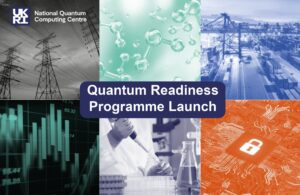
Creating a Common Language
Creating a community of quantum aware research institutions, businesses and government agencies is important because of the deep complexity and the broad interdisciplinarity of the quantum ecosystem, said Chiara Decaroli, outreach and engagement officer for the National Quantum Computing Centre and a quantum researcher. That complexity doesn’t just refer to the machines, themselves, but it also describes the community of people – from academic researchers to end users – who will use quantum to solve big computational problems.
“From my perspective, this field is very complex – these machines are really complex and, in just thinking about the hardware alone, there’s so much interdisciplinarity,” said Decaroli. “You need physicists, you need people with a theoretical understanding, and you also need engineers, including mechanical and electrical engineers. Then, when you consider use case exploration, the number of skills required rapidly increases because you need an understanding of algorithms and all the application domains. And it’s absolutely crucial to bring these communities together to find synergies and a common language. I think many of the barriers can be overcome by bringing people together, to exchange knowledge and ideas, and build a shared understanding.
The project expects to launch its first call for collaborative projects in autumn 2022. UK companies and researchers can register their interest in advance.
You can learn more about SparQ here.
If you found this article to be informative, you can explore more current quantum news here, exclusives, interviews, and podcasts.





